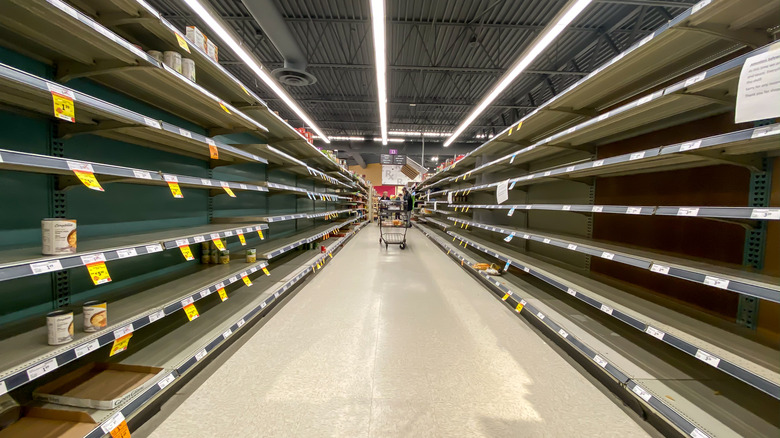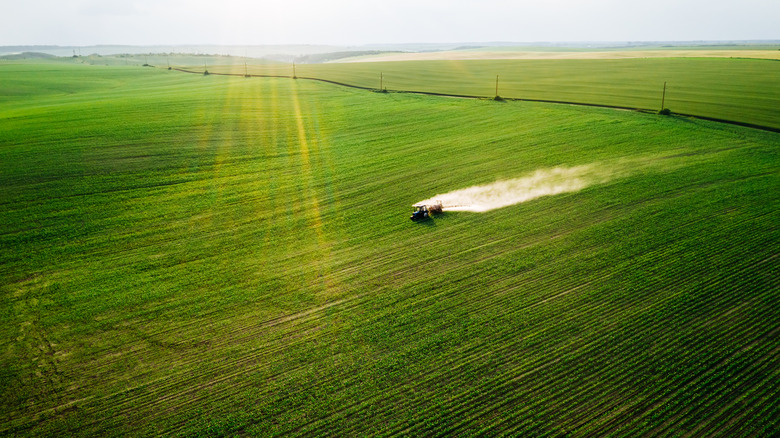How The UN Predicts The Current Food Shortage Could Evolve
The United Nations has offered some grim news.
At the Global Crisis Response Group's second brief in New York on June 8, UN Secretary-General António Guterres detailed at-length the impact of the Russia-Ukraine conflict and its subsequent global fallout. It's no secret that food insecurity has blossomed into a worldwide epidemic since Russia invaded Ukraine in February. And in April, global food prices hit a record high, according to the UN's Food Price Index report. The USDA's Food Price Outlook predicts at-home grocery prices to continue rising between 7 and 8% in 2022. And in May, the U.S. accused Russia of creating food scarcity as a weapon against Ukraine, reports PBS. But the offshoot effects of these export restrictions is creating a global food crisis that could have devastating and lasting effects.
Russia and Ukraine are among the top players in the global food market: Combined, the two countries make up roughly a third of the world's wheat exports, which has caused wheat futures to soar to the highest prices in 14 years. The conflict has also started a global oil crisis with Ukraine as one of the top world producers of sunflower oil. But it is the global fertilizer shortage that is the UN's primary concern looking forward.
No fertilizer means no crops
Russia and Ukraine account for 28% of global nitrogen-based fertilizer exports –- exports which have been dramatically restricted as Ukraine faces trade bans and port inaccessibility due to the Russian invasion, per CNBC. This shortage has caused fertilizer prices to skyrocket for farmers around the world, which might in turn reduce crop yields, says the news outlet. It's a domino-effect on a slippery slope.
Russia has blockaded trade ports in the Black Sea, which has effectively gridlocked the area and instigated a massive suspension on international trade, says World Trade Organization director general Ngozi Okonjo-Iweala, via the BBC. Because of these trade restrictions, Okonjo-Iweala says, an estimated 20 to 25 million metric tons of wheat are currently detained in Ukraine as the global grain shortage rages on. Many countries worldwide have suspended their activity or participation in international trade with Russia to avoid actual or perceived partisanship toward the country during wartime, reports Fortune. But, this suspension has resulted in export prices skyrocketing even higher as the Russian market retaliates.
Without fertilizer, UN Secretary-General António Guterres warns, the food shortage will extend to such indispensable staples as corn, wheat, and rice –- crucial elements of both eastern and western agriculture industries and daily domestic diet. "This year's food crisis is about lack of access," Guterres says. "Next year's could be about lack of food."

